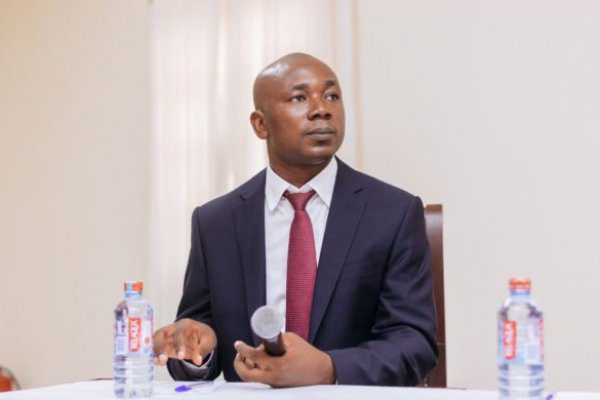Professor Godfred Bokpin, a finance and economics expert at the University of Ghana, has called for an extension of the country’s current IMF programme by 18 months to avert potential financial shocks.
Speaking in an interview on JoyFM on April 3, 2025, Professor Bokpin stressed that an extension is vital for maintaining economic stability and addressing the risks posed by global economic uncertainties.
Professor Bokpin explained that while the government has made progress in fiscal management, including significant expenditure cuts and the implementation of structural reforms, these efforts alone may not be enough to shield Ghana from long-term financial challenges without further support from the International Monetary Fund (IMF).
“The IMF programme has been instrumental in stabilising our economy, but we must recognise that the path ahead remains challenging. Extending the programme for 18 months will provide us with more time to make the necessary adjustments and avoid economic shocks,” he said.
He also pointed out that despite the government’s 2025 budget, which includes measures to correct fiscal imbalances, there is still a considerable risk of financial instability if the IMF programme ends prematurely. The government’s ability to meet its fiscal targets could be hindered by external factors such as global inflation and difficulties accessing borrowing markets.
Professor Bokpin added that the 2024 fiscal performance, which resulted in a higher-than-expected deficit, underscores the need for additional time to ensure fiscal sustainability. “The fiscal deficit in 2024 was larger than anticipated, and with arrears exceeding 67 billion Ghana cedis, we face substantial growth financing needs. This highlights that the current programme has been off track, and an extension is necessary to keep us on course,” he said.
He also warned that without an extension of the IMF programme, Ghana could struggle to manage its debt obligations and meet its fiscal targets, particularly with the upcoming 2026 elections.
He noted that the political cycle often disrupts government policies and spending plans, which could exacerbate the country’s economic difficulties.
Professor Bokpin further stressed the need for a gradual approach to fiscal adjustments, allowing the government to continue implementing growth-oriented initiatives while maintaining fiscal discipline.
“A more gradual approach would give the government sufficient space to implement key programmes, such as job creation and the development of the 24-hour economy,” he said.
While acknowledging the government’s efforts to reduce expenditures and pursue structural reforms, Professor Bokpin cautioned that the pace of these changes could slow economic growth in the short term.
He recommended striking a balance between fiscal austerity and initiatives designed to boost economic growth.
